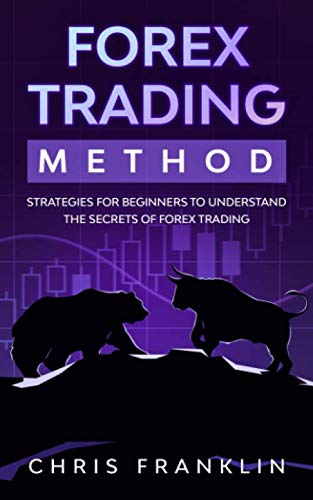Embarking on the world of forex trading can be both exhilarating and daunting for newcomers. Mastering the art of currency exchange necessitates a solid foundation and effective strategies. In this comprehensive guide, we delve into proven forex trading tactics that cater to beginners, empowering you with the knowledge and techniques to navigate the dynamic forex markets with confidence.

Image: stockmarketpartner.com
Whether you’re an aspiring trader or simply curious about this lucrative domain, this guide will equip you with the essential strategies and tips to enhance your trading journey. Get ready to unlock the secrets of forex trading and unlock a wealth of opportunities.
Choosing the Right Strategy for Your Needs
Selecting the optimal forex trading strategy hinges on your individual risk tolerance and investment objectives. Here are some popular approaches for beginners:
- Scalping: This strategy involves executing numerous brief trades within a short time frame, capturing small profit margins on each trade.
- Day Trading: Unlike scalping, day trading involves closing all positions before the trading day ends, minimizing overnight risk.
- Swing Trading: This intermediate-term strategy focuses on identifying trends and holding positions for several days to weeks to capitalize on price swings.
- Position Trading: A long-term approach where traders hold positions for weeks or even months, aiming to profit from major market trends.
Technical Analysis vs. Fundamental Analysis
Forex traders employ two primary methods of market analysis: technical analysis and fundamental analysis. Technical analysis examines historical price patterns to identify trading opportunities, while fundamental analysis considers economic indicators, news events, and political factors that influence currency valuations.
Technical analysis techniques include:
- Price Charts: Traders analyze candlestick or bar charts to identify trends, support and resistance levels, and chart patterns.
- Technical Indicators: Mathematical formulas applied to price data to generate signals, such as moving averages, Bollinger Bands, and MACD.
Fundamental analysis techniques include:
- Economic Data: Traders monitor economic reports, such as GDP, unemployment rates, and inflation, to assess a currency’s strength.
- News Events: Political events, natural disasters, and economic crises can significantly impact currency values.
- Central Bank Decisions: Monetary policy changes, such as interest rate adjustments, can influence market sentiment and currency valuations.
Tips for Success in Forex Trading
Beyond choosing the right strategy and mastering technical and fundamental analysis, success in forex trading requires discipline and adherence to sound trading principles:
- Manage Risk: Determine a tolerable risk level and employ stop-loss orders to limit potential losses on each trade.
- Control Emotions: Avoid making impulsive decisions driven by fear or greed. Stay disciplined and follow your trading plan.
- Learn Continuously: The forex market is constantly evolving. Stay up-to-date on market news, economic indicators, and trading techniques.
- Demo Account: Practice and test your strategies in a risk-free environment using a demo account before risking real capital.
- Seek Professional Advice: Consider consulting with an experienced forex trader or financial advisor for guidance and support.

Image: www.pinterest.com
Frequently Asked Questions (FAQs)
Q: Is forex trading suitable for beginners?
A: Yes, with proper preparation and a sound understanding of market dynamics, beginners can enter forex trading.
Q: How much money do I need to start forex trading?
A: The minimum deposit amount varies depending on the broker. However, it’s advisable to start with a small amount and gradually increase your investment as you gain experience.
Q: What is the best time to trade forex?
A: The most active trading hours occur during the London and New York trading sessions, providing ample market liquidity and volatility.
Q: Can I trade forex on weekends?
A: Most forex markets are closed on weekends.
Q: Is forex trading a scam?
A: Forex trading is a legitimate financial market, but like any investment, it involves risks. Choose regulated brokers and avoid fraudulent schemes.
Forex Trading Strategies For Beginners
Conclusion
Navigating the forex market as a beginner requires patience, discipline, and a solid foundation in trading strategies and analysis techniques. Implement the strategies outlined in this guide, manage your risks prudently, and continuously seek knowledge to optimize your trading journey. Forex trading offers immense opportunities for financial growth, provided you approach it with the right mindset and preparation.
Are you ready to embark on the exciting world of forex trading? Embrace the challenges, master the strategies, and unlock the potential for financial success!






